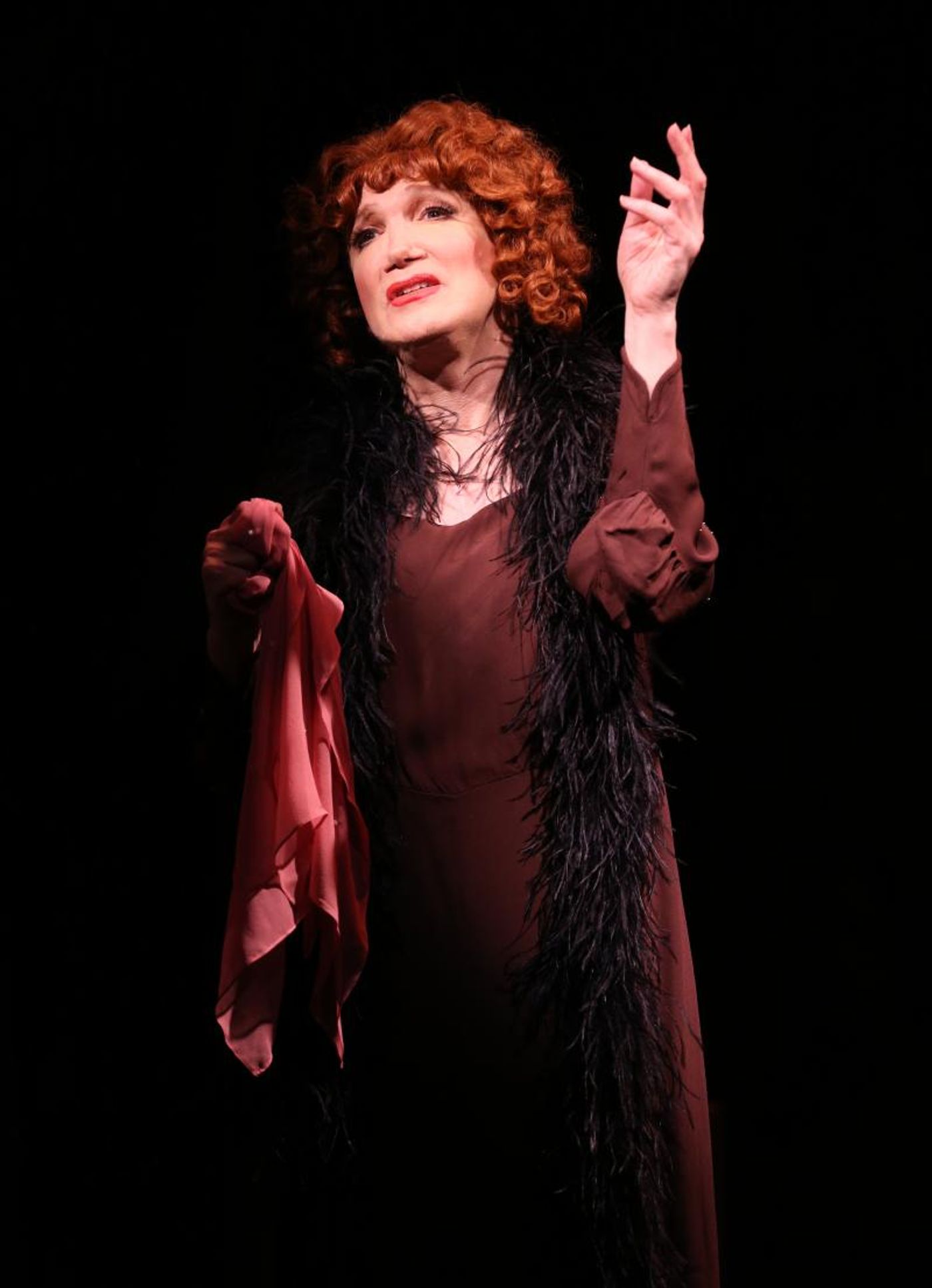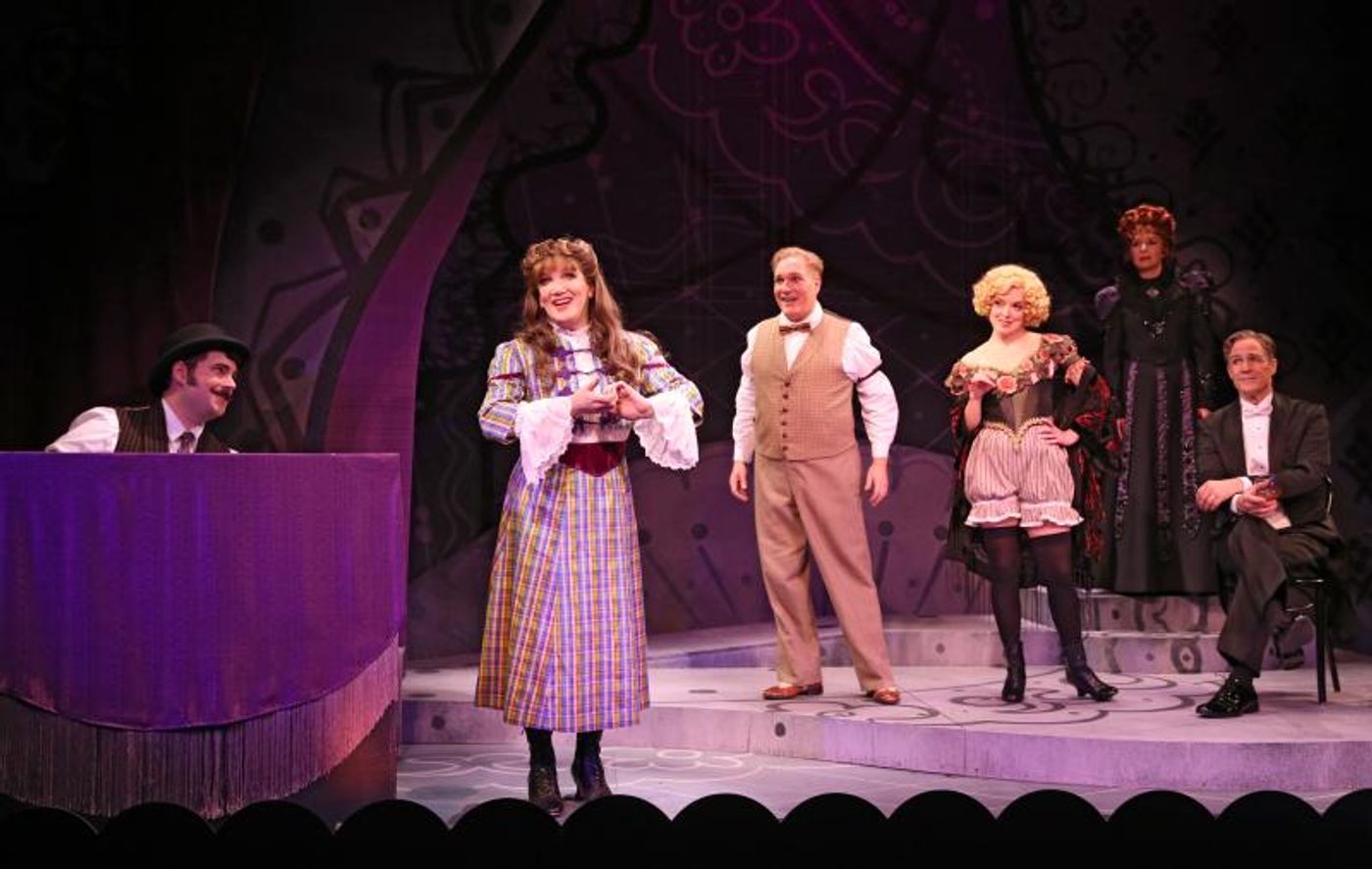Review: Charles Busch Sends Up Pre-Code 'Fallen Woman' Flicks With THE CONFESSION OF LILY DARE
Nowadays there appears to be an increasing awareness in the theatre about presenting women characters through the aesthetic of male playwrights and directors, much of it involving the movie term "male gaze" which was coined by Laura Mulvey in the 70s to describe the disproportionately sexualized manner in which women were presented in film. From that context, it's possible to conclude that this is what playwright/actor Charles Busch has been commenting on all along.

Ever since the days when Reagan-era theatre connoisseurs blazed unknown trails to Alphabet City to catch his low-budgeted genius at the Limbo Lounge as he played an undead silent film star in VAMPIRE LESBIANS OF SODOM and a bikini-clad surfer in GIDGET GOES PSYCHOTIC (later titled PSYCHO BEACH PARTY) and would subsequently venture to Off-Broadway's WPA Theatre to catch him as a noir-styled World War II spy in THE LADY IN QUESTION or a beloved celebrity called before Senator McCarthy in RED SCARE ON SUNSET, Busch has made a career out of writing and playing the leading ladies in comic homages centered on Hollywood's male interpretation of ideal femininity.
He doesn't play real women. He plays movie goddesses in stories typical of those controlled by the men who built Hollywood and devoured by a public that was often too dazzled by star quality to catch on to the patriarchal limitations imposed as they break traditional barriers.
Busch obviously adores the women who played these characters and those in the know can catch references to icons like Claudette Colbert, Katharine Hepburn, Sandra Dee and Barbara Stanwyck in his lines, physical presentation and vocal inflections. Not impersonations, but sincere tributes.
In the wonderfully funny and deliciously rowdy The Confession of Lily Dare, Busch cites pre-production code dramas like Helen Hayes in "The Sin of Madelon Claudel" and Ruth Chatterton in both "Frisco Jenny" and "Madame X" as inspiration for a story of a hard as nails victim of circumstance who defies society's moralities in order to survive.
Set in San Francisco at the beginning of the 20th Century, Busch appears freshly scrubbed and neatly pressed as 16-year-old orphan Lily Dare, who, with no source of income has departed a Swiss convent school to live with her Aunt Rosalie (Jennifer Van Dyck, spot-on hilarious in multiple roles) who she isn't aware runs a bordello.
It's a lonely life for Lily, who is forbidden to associate with the ladies and their customers. She falls in love with, and has a daughter by, her aunt's bookkeeper (Christopher Borg), but he dies in the 1906 earthquake.
Though Mickey (Kendal Sparks), the bordello's optimistic pianist ("There's always work to be found for a piano player who knows ragtime and a hooker who does anal.") and prostitute Emmy Lou (tough-talking Nancy Anderson expertly spewing out gems like "I'm the only dame you got working here that don't smoke opium or hide a roll of cash in her coozie.") are supportive of Lily, she falls for the dashing style and abundant bankroll of Blackie Lambert (crisp and elegant Howard McGillin) who introduces himself as "a shady character from a once prominent family who adds a veneer of class to whatever room he's in."

Nancy Anderson, Jennifer Van Dyck
and Howard McGillin (Photo: Carol Rosegg)
Though Blackie helps Lily become a cabaret star (Busch sings Tom Judson's terrific Kurt Weill/Bertolt Brecht pastiche "Pirate Joe"), scandal and bad luck send her to jail and while she's serving time, her daughter Louise (Van Dyke) is adopted by a couple who see her grow up to become a famous opera star. When she's at last freed, Lily turns to the only business she knows for survival, as she watches her child's success from a distance.
With a story spanning several decades, Jessica Jahn's costumes and Katherine Carr's wig's have Busch suggesting screen gems like young Audrey Hepburn and the enticing Marlene Dietrich, but despite the genuine hilarity throughout, director Carl Andress keeps the actors grounded in sincerity, allowing us to experience how such tales, when told on the screen, enraptured those early talkie audiences so much that a production code was put into effect to make sure the public didn't sympathize too strongly with the tragically "fallen women" of the movies.
Reader Reviews
Powered by
|
Videos

